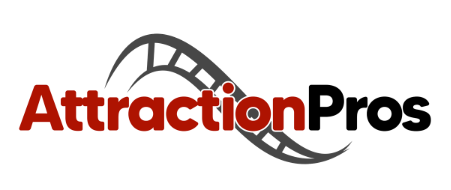
Eliminate “Let me get the manager” in 3 steps
I recently spoke at a conference on the topic of guest experience. During my presentation, I briefly touched on how service recovery can be so effective that guests who complain can ultimately end up having a more positive experience than guests who were initially satisfied. At the end of the presentation during the Q&A, one of the attendees expressed concern about service recovery at his business. He wanted to know my thoughts on he can have his staff resolve guest complaints, but he did not want the staff to be able to give anything away for free. He was worried that they would either take advantage the business, or that guests would take advantage of them if they were able to compensate so easily.
I responded by showing that if his recovery was effective, how compensating guests would have benefits for the business as well. Additionally, if the staff was prepared on how to encounter upset guests, that would diffuse the situation in the most expedited manner, and lastly, if anything they gave away was properly documented, it would minimize the likelihood that their empowerment would be abused (either by the staff or by guests). I pointed out that whenever an employee has to say, “Let me get my manager,” the recovery process has not started yet. In fact, it only exacerbates the situation, as the recovery is delayed, and might require the guest to repeat their issue again to someone new, compounding the frustration on top of what is already wrong to begin with.
Instead of restricting empowerment out of fear of abuse, here is a 3-step process to eliminating the “let me get my manager” effect and ensure that your frontline staff can iron out any friction points with guests before they become too severe.
1. Review what you have to offer. Identify what your specific recovery tools are. If offering refunds for guests is your default solution, it is time to shift that mentality. You have plenty of tools at your disposal that are either cost-effective or completely free for you, and in the best of cases, result in higher revenue for you in the future.
2. Prepare your staff accordingly. Having the correct tools in place is the first step, but having the skills and abilities is another. Knowing that your frontline staff will come across upset guests from time to time, plan ahead by training them to have those difficult conversations from the start. Specifically, the LAST model works most effectively, across all levels of staff and for the full spectrum of complaints.
3. Document, document, document. If your staff has to back up why they are offering something to a guest, the chances of abusing the system drop drastically. Ensure that any recovery tools that you have are tied to back to the employee that is distributing them AND the guest who is receiving them, and in most cases, you should require that they indicate what the issue was and how the compensation tied to it. If the compensation does not fit the failure, this is the perfect starting point for conversations and coaching that will only enhance their service recovery skills. Optimus is a great tool for documenting and tracking guest complaints.
By identifying what your concerns are when it comes to empowering your staff with resolving guest complaints, you can eliminate those concerns by preparing them accordingly through proper recovery tools, conversational resolution methods, and organized documentation of any recovery that is delivered. Once those three are in place, the phrase “let me get my manager” will be a thing of the past.
Josh Liebman
Josh Liebman specializes in guest experience within attractions, tourism, and hospitality, including service standards, complaint resolution, and driving guest loyalty. Josh is a serial entrepreneur, podcaster, consultant, and speaker. Josh has worked for some of the top attraction operators in the world, including, but not limited to Walt Disney World, Universal Orlando, Merlin Entertainments, and Cedar Fair. Josh has been integral to the openings of multiple attractions in various leadership capacities. Additionally, Josh has consulted for many of the world’s leading hospitality brands, including Ritz Carlton, Four Seasons, Waldorf Astoria, and many more. Josh is Co-Host of the AttractionPros Podcast, which brings the audience into the room with the top leaders, executives, and influencers in the attractions industry.
